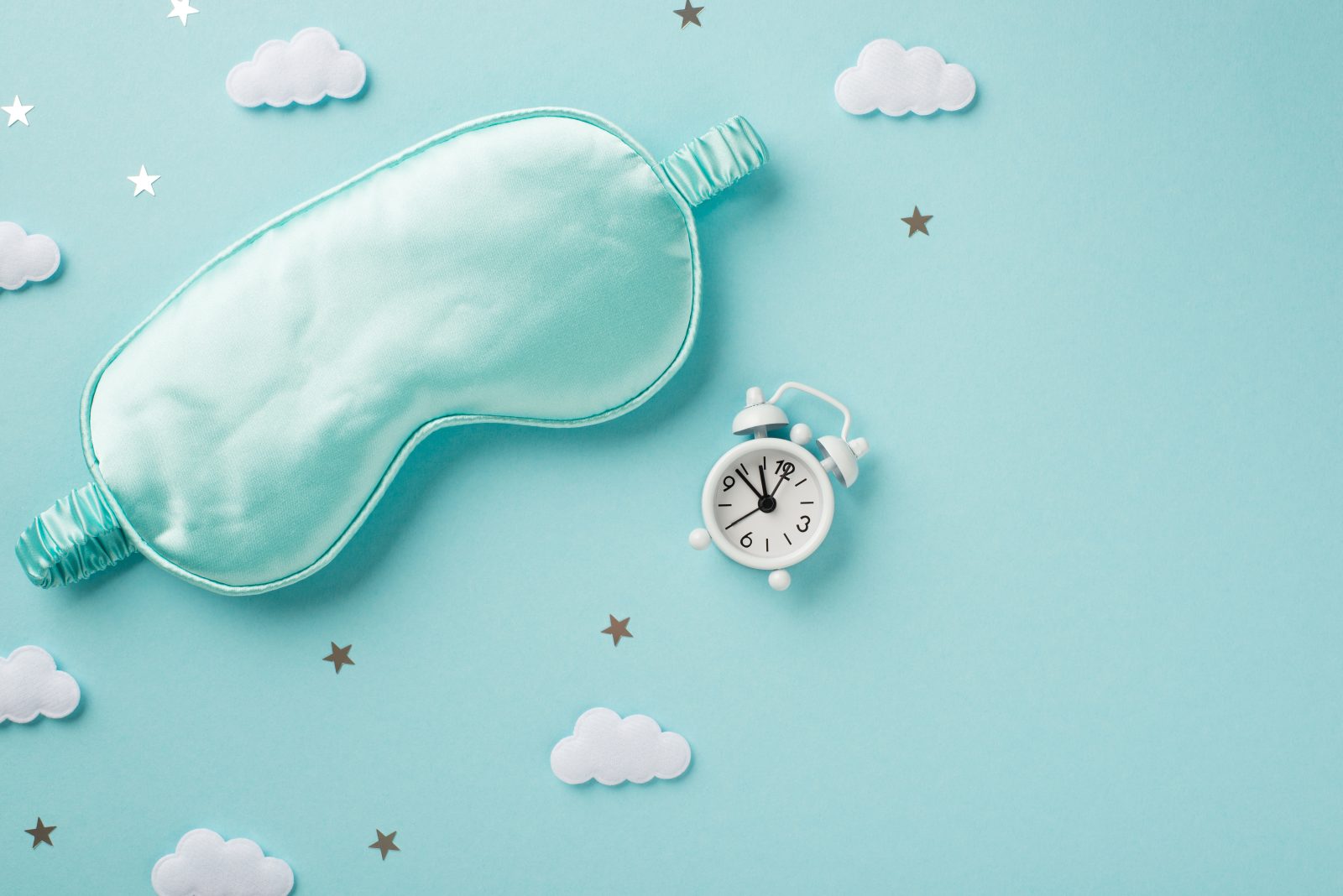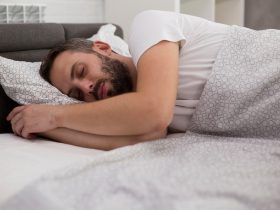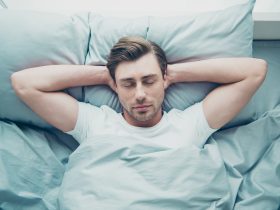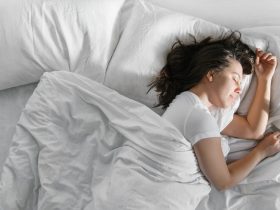Everybody knows the old adage that nothing beats a good night’s sleep. Even if you do manage to carve out enough time to sleep, you may still have trouble falling asleep or resuming a restful slumber.
In other words, you’re not alone. What you’re up to when awake may have a surprising amount of bearing on this. Here are several everyday routines that could be keeping you up at night.
1. Habits before bed
Developing a routine to help you relax before bed might greatly improve your chances of getting sleep. There are a few things you can do before bed to tell your brain it’s time to relax, such as light reduction, diffusers for aromatic oils, listening to soothing music, relocating to a smaller, more intimate setting, switching off all technological devices, sipping something hot, and getting into jammies while meditating.
2. A warm place to sleep
You can do a lot to keep a room cool by leaving a window open or turning on a fan. There’s no need to keep the air conditioning on all day; instead, just turn it down before bed.
3. Cocktails in the evening
You might discover that you sleep more soundly after a few drinks since alcohol has a depressive effect on the central nervous system. On the other hand, vivid dreams and subsequent awakenings are not uncommon. You could feel sleepy after a few drinks, but you won’t receive the restful sleep you need.
4. Coffee in the evening
Although you may be aware that caffeine causes wakefulness, you may find it difficult to resist that afternoon brew. In order to have better rest at night, avoid caffeine after 2 p.m. Try something like a cup of herbal or decaf tea or some warm, spiced milk.
5. Warm water soak or shower
A hot bath before bed may seem like a great way to unwind at the end of the day, but it may actually prevent you from dozing off. This is due to the fact that taking a hot shower or bath will raise your core temperature.
6. Intake of vitamins
Vitamins can either help you sleep better or keep you awake. For example, a 2018 study examined the effects of a B-complex supplement and vitamin B6 supplementation on sleep quality and found that the latter produced better results.
Compared to people who didn’t take vitamin supplements, those who took multivitamins or several single vitamins had worse sleep quality. Vitamin users were more likely to suffer from insomnia, frequent waking, and the use of sedatives than those who did not take vitamins.
Consult your physician to determine which, if any, of the vitamins you may already be getting too much of in your diet.
7. Hydration
Keeping yourself hydrated all day will help you sleep better at night. Maintaining a healthy fluid balance throughout the day will allow you to make it to the morning without worrying about running dry. Drinking 8 ounces of water an hour before bed will give you plenty of time to use the restroom before turning in.
8. Habit of smoking
Some people may think that smoking before bed will help them unwind, but this isn’t always the case. If you smoke right before bed or in the middle of the night, your brain will subconsciously start desiring nicotine. The need to satisfy it may cause you to awaken or at least make sleep difficult. Insomnia is highly associated with nighttime smoking.
9. Negative reactions to drugs
Participants in the study who also experienced insomnia used 239 different drugs, but the researchers emphasized that this number does not include all medications with insomnia side effects that are available in the United States.
Medications might have side effects, so if you think yours is keeping you from getting enough rest, talk to your doctor. They could possibly offer another solution.
10. Distinguishing between calming and energizing aromas
The sense of smell has a big impact on one’s ability to sleep. If you’re having trouble falling or staying asleep, keeping an aromatherapy diffuser by your bedside may be able to assist.
11. Psychological games
Reading mentally or emotionally engaging literature, problem-solving, or having conversations that are emotionally strong can make it difficult to drift off to sleep, despite the fact that these may sound like activities that are best left for the end of the day.
12. Workouts in the evening
The timing of your workouts may affect your circadian rhythm, even if exercise has been found to increase sleep quality. Doing physical activity between the hours of 7 a.m. and 4 p.m. in the morning or afternoon may cause you to feel drowsy sooner in the evening, while doing the same activity between the hours of 7 p.m. and 10 p.m. in the evening may help to delay the body clock. If you can, try to get your daily exercise in before 7 o’clock instead of later.
13. Plans for the weekend
It’s tempting to break with the norm on the weekend and have some fun. This may be disturbing your normal sleeping pattern. Your natural body clock can be thrown off if you have a habit of staying up late on weeknights and sleeping in on weekends. Poor sleep quality is often the result of an erratic bedtime and sleep schedule. Instead, you should attempt to make your daily and weekend wake-up and bedtimes identical.
14. To-do list
Overthinking the tasks you need to get done can keep your mind active late at night, preventing you from falling asleep. Putting your to-dos on paper can help you feel less stressed and more in charge, which in turn can enhance the quality of your sleep. Instead of stewing over a problem, write it down. A sense of accomplishment and relief from responsibility might result from this.
15. Bed habits
The findings of the poll indicated that individuals who made their beds on a regular basis were more productive, consumed healthier diets, and experienced a greater sense of accomplishment at the end of each day. Those who made their own beds slept an extra 20 minutes on average, had an easier time falling asleep, and woke up feeling more refreshed as a result.
16. Snacks before bedtime
Particular meals, particularly when consumed in the evening, have the potential to disrupt sleep and should be avoided some of these are cacao sugar, saturated fat, caffeine, and chocolate. Another study from 2016 found that diets high in sugar and saturated fat but low in fiber can cause sleep disturbances. Avoid eating a heavy dinner that is high in sugar or saturated fat right before going to bed.
17. Lengthy naps during the day
You might believe that taking a nap during the day will allow you to “catch up” on the sleep you’ve lost, but in reality, it might do more harm than good. It will be more difficult for you to get up from your nap, and it will also be more difficult for you to fall asleep later that night if your nap is long enough for you to enter a deep slumber.
18. The light of day and the blue light
The circadian rhythm is an internal regulator of sleep and wakefulness, and exposure to daylight is a key factor in maintaining its health. Sunlight is one of the most essential cues that indicate to our brain that it is time to be awake while diminishing amounts of light signal that it is time to be ready for sleep.
Modifying your routines during the day can help you get a better night’s sleep, and there are a number of easy strategies you can employ. If modifying these aspects of your lifestyle does not help, you should talk to a medical professional about alternative options that can assist you in developing a regular, healthy sleeping pattern.
















Find Us on Socials